We were slightly surprised to learn that in this digital era, many physicians are still turning to internal medicine textbooks to prepare for board certification and recertification. In a recent online survey of more than 900 Physicians’ First Watch readers, 56% of respondents checked the box for “textbooks” when asked what study aids they used to prepare for board exams.
Textbooks were followed by online question banks (52% of respondents), print question banks (40%), board review courses that required travel (22%), and courses available online (19%).
A closer look at how physicians use internal medicine textbooks reveals that these books are rarely used alone as the sole study tool for board exams. Rather, many physicians use them in conjunction with other tools.
Only 49% of people who used textbooks to study for boards rated textbooks as “highly effective.” Conversely, 70% of question bank users and 50% to 60% of users of various types of board review courses found those study tactics “highly effective.” So while internal medicine books may not be a primary study tool, they play an important role augmenting other tools.
Following up further via phone and email interviews with survey respondents, we learned that a number of physicians who checked the box for textbooks were actually referring to internal medicine board review books – which were not among the survey choices. So maybe textbooks, narrowly defined, was not the most frequently used tool. But our respondents were happy to share how they used textbooks and board review books as part of their study plan.
Internal Medicine Textbooks as Secondary, Not Primary, Tool
A current fellow in critical care medicine studied directly from a textbook for his initial ABIM certification in internal medicine in 2002. For more recent recertification, he read specific chapters in Harrison’s online, worked through print and online question banks, and attended a live course. He rated them all “very effective,” each in their own way:
A textbook provides more in-depth study but requires significant time commitment. Board study books and question banks are more efficient.
Another question bank user, who recently passed his first board certification exam in pediatrics, studied with a textbook and a question bank. He described the difference this way:
In a textbook, you read along and say, “Yes, I know this.” A question bank was better for finding out what I didn’t know. Then, I’d look it up in a textbook.
This combination is common among physicians who study using internal medicine question banks. A Pennsylvania internist who used the print versions of Harrison’s, Medstudy, and MKSAP when she initially certified in 2006 explains her experience:
When I studied from a textbook, I never knew what I did (or didn’t) know. It was mass accumulation of knowledge, and I found I drifted toward reviewing the information that I was most comfortable with.
This same internist is now studying for recertification and is using the MKSAP app, UpToDate, and NEJM Knowledge+, with a primary focus on the question banks.
I find that I study best using questions/study banks. They use my time more efficiently by pointing out my areas of deficiency and allowing me to target my hours toward studying the areas where there are deficits. This time, I’m using textbooks but only as a supplement to question banks. I use the question banks to identify gaps in knowledge, and then if the gap is wide enough (rheumatology and the spondyloarthropathies come to mind), I go back to the textbook to review the entire concept.
These two physicians experienced what education experts have often observed: When people are studying, they tend to gravitate toward material that they already know. While this practice may give you a confidence boost and a useful review in specific areas, it may not be effective for mastering a large body of knowledge, as is necessary to pass the ABIM exam. Too much time spent studying what you already know leaves little time to bolster weak areas.
Time Constraints Drive Physicians from Textbooks to Practice Questions
A Massachusetts internist who has taken three certification exams during the past 20 years said that in his 2013 exam, he studied from MKSAP books rather than textbooks. The demands of full-time practice made it difficult to carve out study time, but he said that working through review questions, for both Maintenance of Certification credit and board prep, was a good use of his time:
I didn’t have any time to read the individual study books, but I did read about half of the Board Basics book, which is a dense review book, and I did the general medicine questions and some subspecialty questions on MKSAP online — to study and also to get MOC credits.
Selective Studying from Internal Medicine Board Review Books
Dr. Ellie Alevritis, an internist in Arizona, passed her initial certification exam in internal medicine in 2004, after studying largely from MedStudy and MKSAP books. When she prepared to recertify in 2014, she turned to the same resources because of the convenience, her experience with them, and the recommendations of peers. What she found most valuable puts her in the category of what educators call a “visual learner”:
The most effective use of textbooks was studying pictures or diagrams that could potentially be on the exam. Least effective was all the extraneous information that was included. I used MedStudy and MKSAP, otherwise no other real textbooks. MedStudy had more concise information than MKSAP. For me, the best study tool was doing MedStudy and MKSAP questions and reading explanations. Also, MedStudy Board Review videos were helpful.
An Ohio internist also studied from the MKSAP book for his initial 2001 certification and the print MKSAP 15 for his recertification exam in 2011. Like others who feel they learn best by reading, he preferred this method to an in-person course.
[The book] was a good case-based review. The level of detail was more than sufficient compared to the level of detail in the questions on the actual board exam. I found it to be a very effective tool. For the 2001 board exam, I attended a board review course but did not find it as effective. It was less time efficient and did not provide as great a level of detail as MKSAP did.
One surprise, perhaps, going against the technology trend, is that use of internal medicine books for board study has remained fairly constant, in the 50% to 60% range of all respondents, in the past decade. But again, this may include shifts in usage from textbooks to board-prep books — or to the use of textbooks as an accompaniment to question banks.
Study Habits Shift from Print to Online
Predictably, most of the physicians we talked with are shifting to online tools, even for reference needs. Dr. Elizabeth Gabay — who some would call a “super certifier” for maintaining multiple subspecialty certifications in internal medicine, geriatrics, and infectious disease — has changed her studying regimen for the convenience of online tools. She still uses her time-tested method of textbooks, question banks, and note-taking, but she uses textbooks less often now.
She used to use the test blueprints from ABIM and other organizations as a guide for what to study from her textbooks, but now, question banks and other products map her studying to the blueprint for her. She finds answering questions on an iPad to be more convenient than lugging heavy textbooks around, and she uses online reference materials when she wants more depth or specifics. Overall, she finds studying via questions “more rewarding.”
But she hasn’t completely abandoned her familiar textbooks when she needs to reinforce or relearn some knowledge. She’s not worried about obsolescence, she said, adding, “Some things don’t change.” (And she knows better than to study outdated material.)
Where NEJM Knowledge+ Fits In
NEJM Knowledge+ was created, in part, on the premise that just as a question bank is probably more effective than a textbook for assessing what you do and don’t know and for increasing your clinical acumen, so an adaptive question bank might be more superior than a static question bank. We hope that future surveys and studies will bear this out!
What study tools did you use to prepare for ABIM (or other) certification or recertification? Share your ideas and suggestions here.



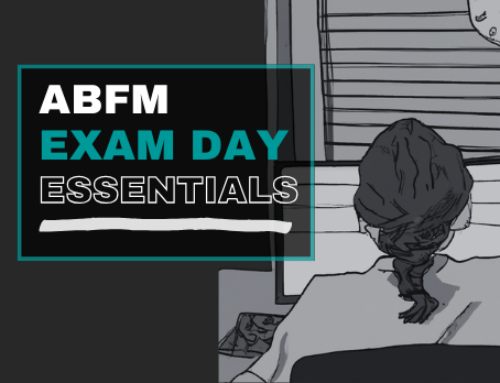
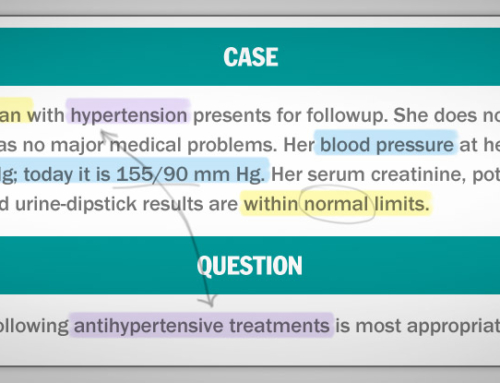

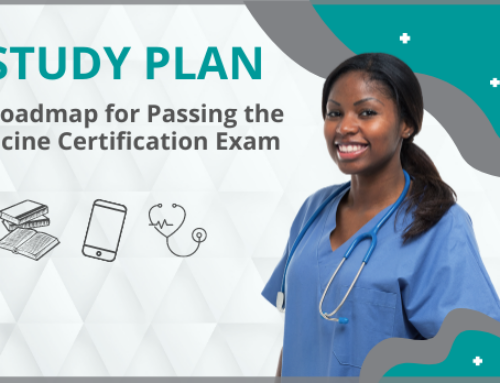
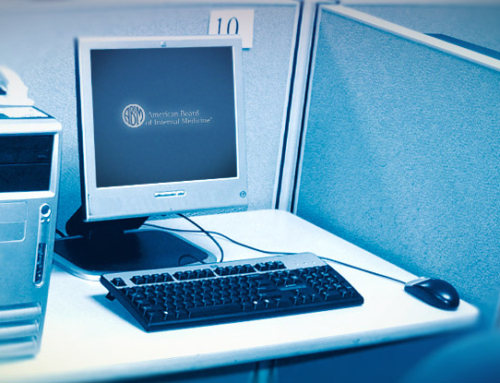
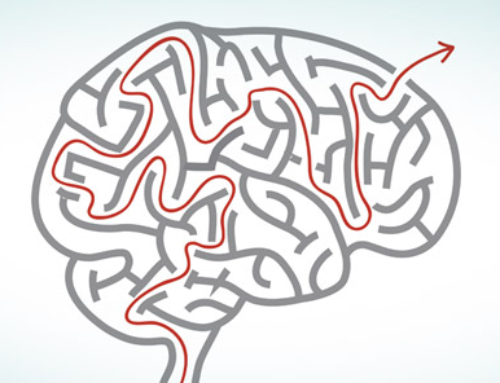
thank you